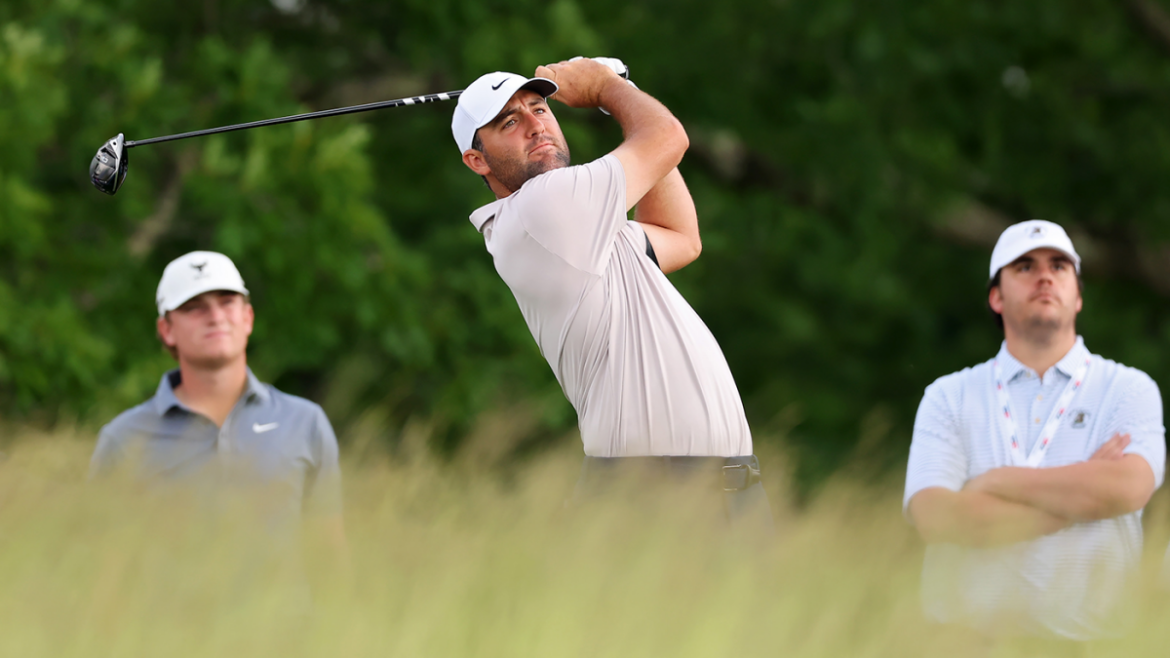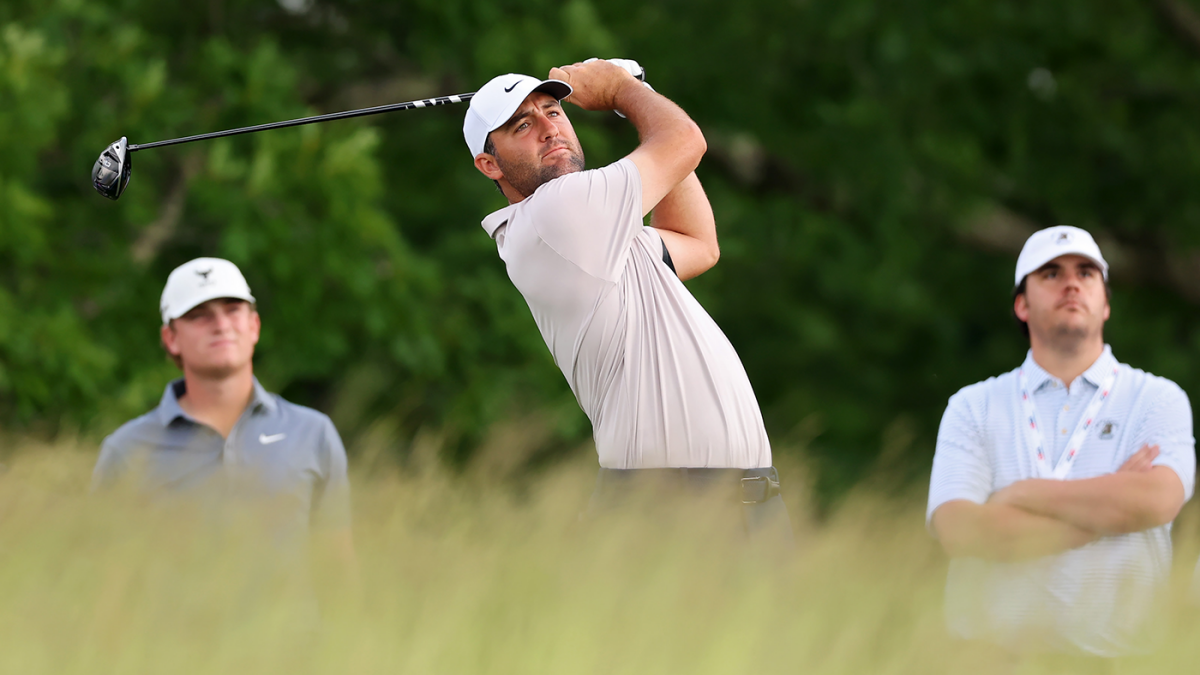Scottie Scheffler’s Ascendancy and the Challenge of Oakmont: A Comprehensive Analysis
Scottie Scheffler’s Journey to Golf’s Pinnacle
——————————————-
Scottie Scheffler, the world No. 1 golfer as of mid-2025, has firmly established himself as a dominant force in professional golf. His recent triumphs—with notable victories in three of his last four tournaments, including the prestigious 2025 PGA Championship and the Memorial Tournament—cement his status not only as a top player but as a major championship-level competitor. Scheffler’s rise is marked not just by physical skill but by a psychological resilience that sets him apart. His ability to stay patient and composed, particularly in high-pressure moments—exemplified by maintaining a six-shot lead with three holes remaining in a major final—has been described as his superpower.
His putting has evolved into a weapon, with analysts noting that he is now one of the elite putters on tour, a crucial skill for navigating the demanding greens of championship courses. Moreover, his capacity to adapt—both in managing his swing and refining his mental approach—aligns with the trajectory of a player poised to define an era.
The Oakmont Challenge
———————
The 2025 U.S. Open at Oakmont Country Club presents one of the most formidable tests in golf. Oakmont’s notorious difficulty features punishing rough, undulating greens, and tight fairways demanding precision and strategic course management. The club has a storied history in U.S. Open golf, having hosted the championship more times than any other venue, and its reputation for humbling even the most gifted players is well established.
Scheffler’s relationship with Oakmont adds a compelling layer to the narrative: he made his U.S. Open debut there as a 19-year-old amateur and now returns as a world champion and dominant tour player. This contrast underlines both his growth and the psychological weight that the course can impose. Despite his confidence and recent streak of victories, Oakmont’s rigors require him to prepare for “probably the hardest golf course that we’ll play,” as Scheffler himself acknowledged.
Patience as a Strategic and Psychological Asset
————————————————
A central theme in Scheffler’s competitive profile—and in predictions about his performance at Oakmont—is patience. Golf pundits and analysts consistently emphasize that Scheffler’s most consistent advantage is his ability to remain calm and stay the course during challenging segments of competition. This temperament is particularly critical at the U.S. Open, where aggressive shot-making often must be balanced with caution due to severe course setups.
At Oakmont, where a miscalculation can lead to compounded penalties, Scheffler’s steady approach marks him as a favorite. His recent history confirms this: he has succeeded not by overwhelming power alone but by blending physical skill with mental discipline. Commentators have pointed out moments when advisors have helped him settle his mind, enabling better shot placement and control—a psychological discipline that translates into tangible scoring advantages.
Competitive Landscape and Potential Obstacles
———————————————
Despite being the overwhelming favorite, Scheffler faces a field not lacking in talent or motivation. World-class golfers such as Rory McIlroy, Xander Schauffele, Bryson DeChambeau, and Collin Morikawa bring their own challenges. McIlroy’s resurgence, DeChambeau’s refined physical approach and manageable putting setup, and a strong contingent of hungry competitors—including emerging LIV players—make for a packed leaderboard.
Moreover, Oakmont’s conditions have historically presented “superstar curses,” where even the top players succumb to trials. Family distractions and off-course pressures sometimes factor into performance fluctuations, and Scheffler’s status as a celebrity athlete brings its unique challenges, such as managing attention and expectations (illustrated by his need to delete his Venmo account amid intrusive fan interactions).
Nevertheless, assessments from betting markets and golf analysts overwhelmingly place their confidence in Scheffler, supported by his current form and adaptability.
The Strategic Importance of Safe Play at Oakmont
————————————————
In a U.S. Open that rewards smart, conservative golf, Scheffler’s game fits the model to tame Oakmont’s difficulty. His recent streak shows a trend toward precision and consistency, rather than swings for spectacular but risky shots. This conservative strategy, combined with his robust putting ability, suggests a high likelihood he can manage Oakmont better than many.
Experts note the value of course management, particularly on par-5 holes where decision-making can make a decisive difference. Scheffler’s experience and caddie collaboration have yielded continuous refinements in this area, making his front-nine misses less frequent and enabling more balanced, confident shots.
The Psychological Battle of Being the Favorite
———————————————–
The mental component of being the overwhelming favorite cannot be overstated. Scheffler is conscious of the weight that comes with expectation. Nevertheless, he expressed a deliberate intent to ignore external noise and focus on the game itself, indicating a maturity in handling fame and pressure. His “had to get rid of Venmo” anecdote underscores how modern athletes must also manage the social and cultural dynamics outside the fairways.
This focus on internal processes rather than external validation is a hallmark of champions and bodes well for his performance under U.S. Open pressures.
Conclusion: Scheffler’s Path to Golfing Greatness at Oakmont
————————————————————-
Scottie Scheffler exemplifies the qualities that define a modern golf great: skill, mental fortitude, adaptability, and a measured approach to competition. His recent victories illustrate a player peaking at the right moment. Oakmont’s challenge is immense, steeped in history and unforgiving in execution, but it is precisely the test that suits Scheffler’s superpower—patience.
While the competition is fierce and conditions brutal, Scheffler’s blend of tactical acumen, elite putting, and psychological resilience positions him as the man to beat. Should he harness these elements effectively, his pursuit of the U.S. Open title could solidify his legacy, bringing him one step closer to a career grand slam and an enduring place in golf’s pantheon.





